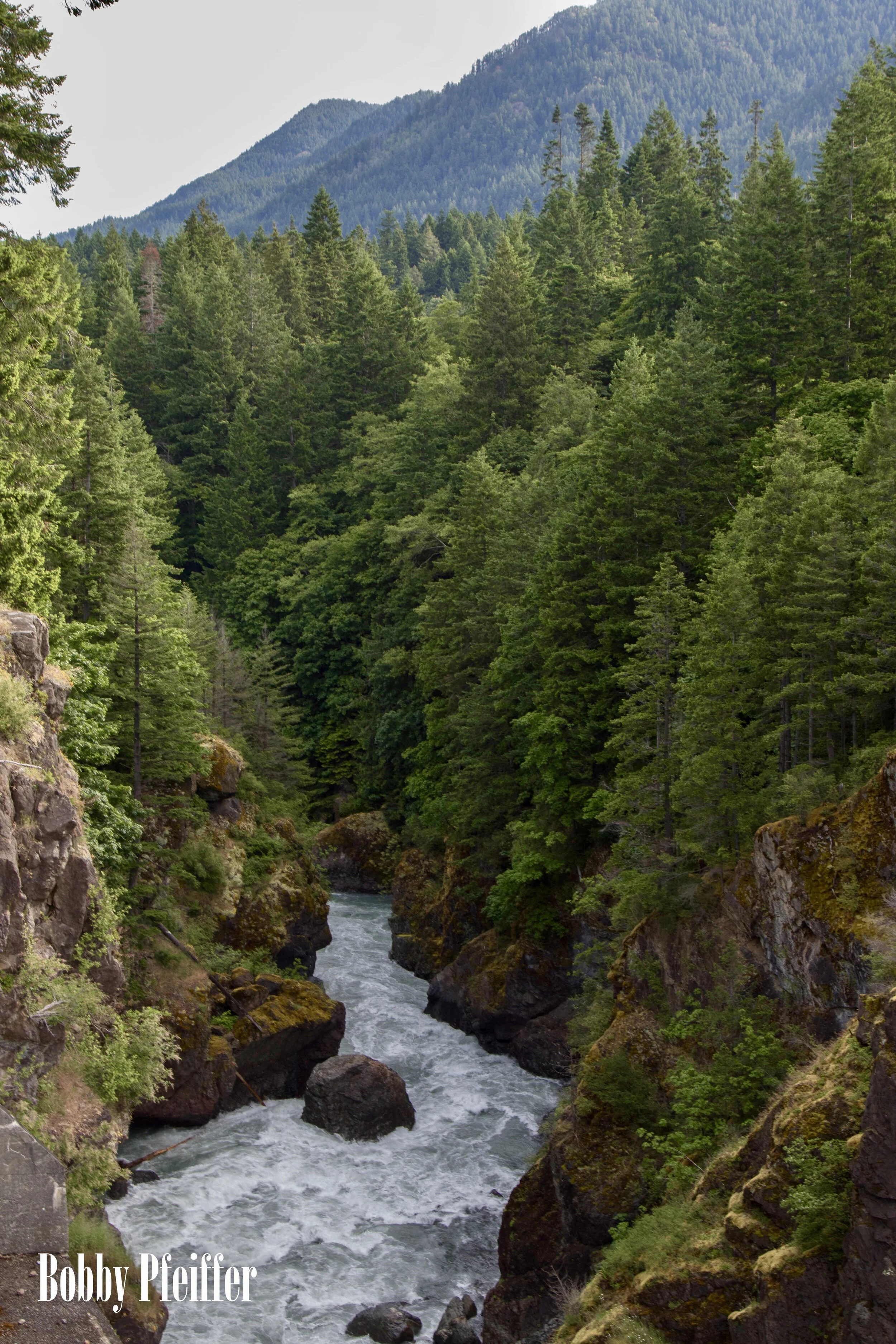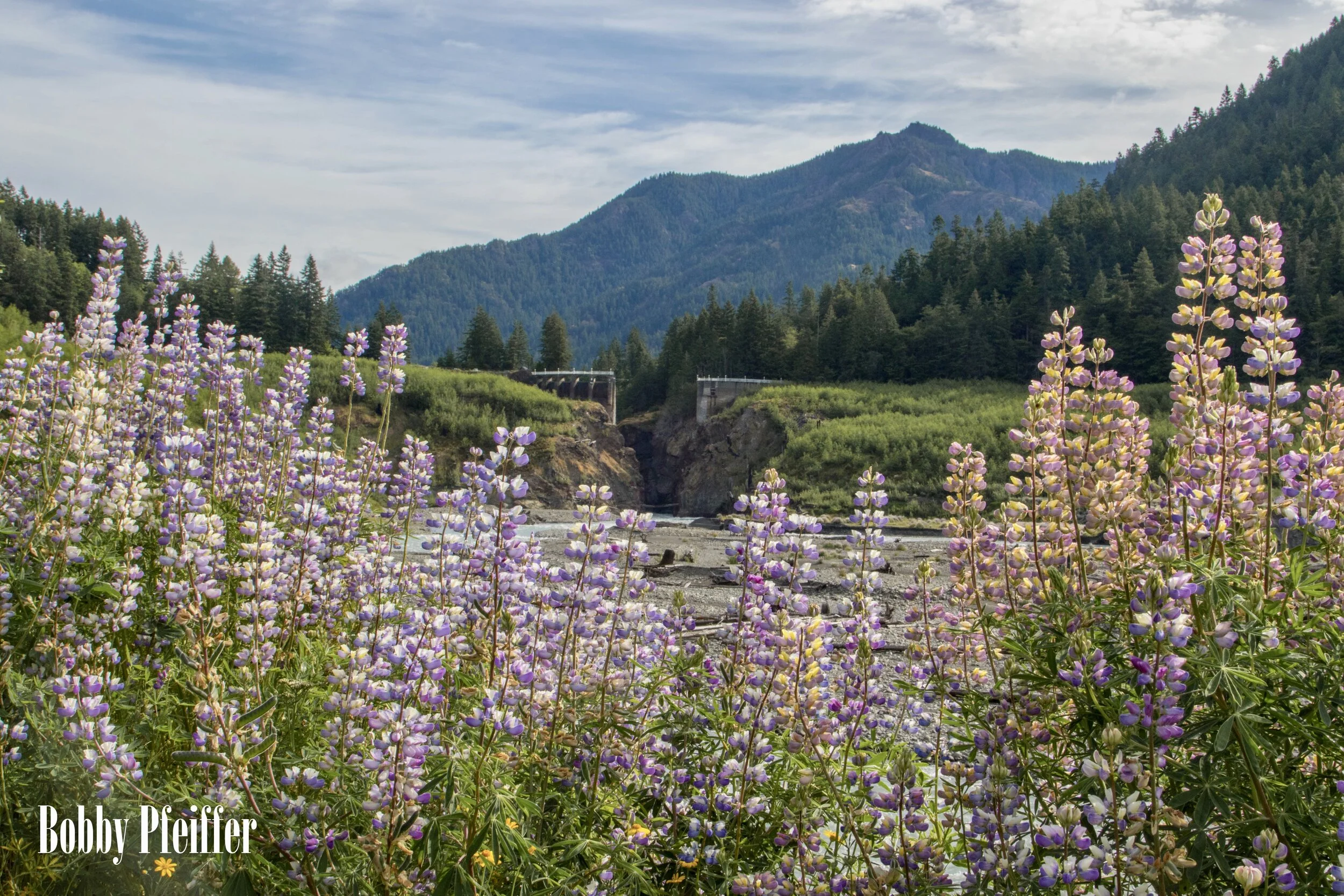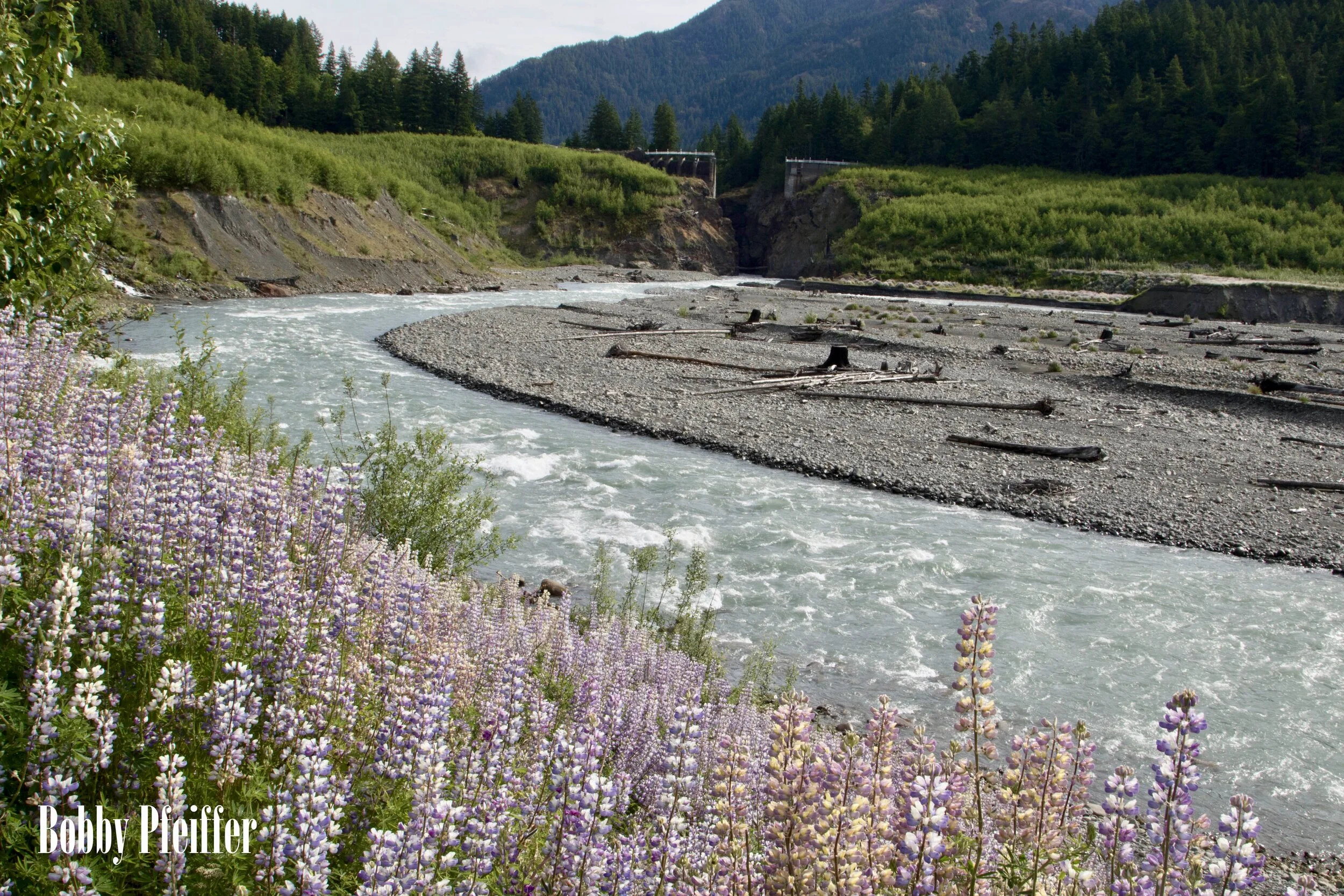The Elwha
My morning drive had been an eventful one, I’d lost the sea cliffs, the rainforest, and the heavy mist, trading it in for clear blue skies and a cold ocean wind. I was still looking out at the ocean but instead of an usettling gray and breaking waves this channel was the deepest of blue with a thorough sprinkling of the white specks indicative of wind chop. Sea on one side, I could now see the towering mountains now boarded the other. The road turned off from the coast, and into the the yawning maw of the olypimcs. Gray-blue flames shot from the beasts mouth and into the pacific ocean, the wildest river I’ve ever seen and perhaps the wildest I will ever see. Continuing slowly up the rutted, washed out, stone strewn, paved road? It was easy to see why this was a natural corridor. Compared to the massive blocks of stone on either side of me this gap seemed manageable. It seemed to go all the way, all the way to where I wasn’t sure.
I had heard the story of the Elwha years before. An old dam was taken down, freeing the icy waters within. It was not without controversy, the power from the dam was put to good use in the nearby bustling port towns that speckle the isolated peninsula. The landmark win for conservationist meant not only the restoration of a natural landscape but also the hopeful return of the king salmon that once started and ended their lives here. This would be a field test for dam removal, if the salmon returned and in historic numbers then it would pave the way for the removal of more dams throughout the Pacific Northwest. Adding yet more glamor to the story the salmon that inhabited this wild river were said to have been massive, rumors of hundred pound fish circled around. What a boon that would be to the region, not only anglers seeking to land the fish of a lifetime but to the endangered population of Orca known as the Southern Resident Killer Whales. These Southern Residents, so named because of their southern proximity to Vancouver Island feed on a diet of exclusively salmon, and a hundred pound fish would make the best of meals for a group that is struggling to find their spot in a modern world with less fish, more boats, and more pollution.
As I made my way further into the wilderness the road conditions continued to deteriorate but my spirit grew more and more giddy. The steep canyon walls reflected the roar of the river along with the roar of my engine making odd but beautiful bedfellows. I was nearly at the site of the old dam, I could see the concrete remains on either side of the river paying homage to the wonders of man now defunct and deemed more harmful than wondrous. At this point the rush of the waters was deafening but surprisingly it wasn’t what was most striking. Where there had been crisp mountain air there was now sticky sweet floral notes bombarding my face. I could taste the grape flavor goodness that swirled all around. Cresting the hill and parking in the small gravel lot I could see why, more lupine in denser aggregation than I thought possible. The former lake bed was a monoculture of the healthiest four-foot tall lupines one could imagine.
These flowers were breathing life into the desolate soil, slowly allowing a healthy mix of vegetation to take root. What a poorly misunderstood flower they were. Once believed to suck the nutrients out of the soil they were called the wolf flower because of the supposed destruction they wrought. It’s amazing how deeper understanding of Lupine and Lupus has liberated them of old stereotypes and now cast them as an essential precursor to a healthy ecosystem. Part of me wishes to rewrite the story tying their names together but I don’t wish for the knowledge of human fallibility to go unnoticed.
I reveled at the top of the hill taking everything in. My mind wandered and conjured images of the past and present of this piece of water. The dammed waters bringing order to the creek that flowed downstream and canoes with fishing poles in the reservoir upstream, the gentle whirl of turbines spinning and cracks of electricity conducting over aging wires. Before that indigenous people with woven nets scooping hundred pound salmon as they fought against they icy current, leaping waterfalls as they struggled to complete their singular mission in life. And before that when no human was around to hear the thunder of water on rock and no human to hunt off the brown bears that undoubtedly grew huge to match the massive food sources. I even ponder what it looked like before the olympics rose from the sea 10 million years ago.
While it is true we never step in the same river twice, one can’t help but think about the Elwha as a particularly different river. I fell in love with the Elwha’s vibrant past and with a bit of luck I hope to keep falling in love with its vibrant future.





